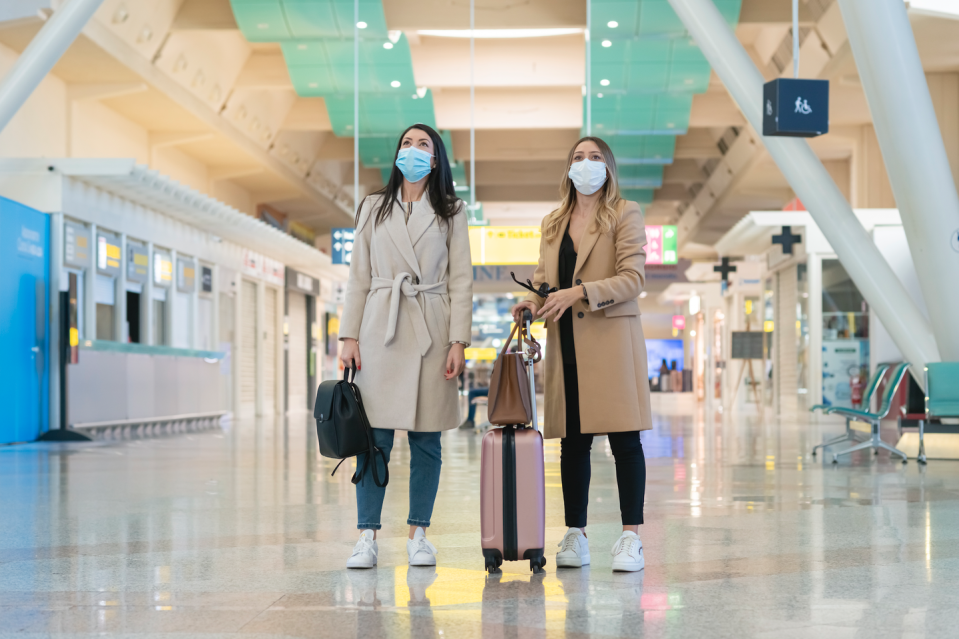How are Omicron symptoms different to other COVID variants?

Over recent weeks, talk of the new COVID-19 variant Omicron has been getting louder and louder. It was first reported to the World Health Organisation (WHO) by scientists in South Africa on 24 November and later listed it as a 'variant of concern' when cases of the Omicron variant rapidly increased across the world.
In the UK, we've seen restrictions tighten once again as a result of the variant spreading, including increased travel restrictions, the reintroduction of mandatory mask wearing, work from home guidelines and a quicker roll-out of the booster vaccine programme – which offers better protection against Omicron.
But, with Omicron predicted to become the dominant variant in the UK within a matter of days (if it's not already), many of us are asking: What are the signs and symptoms we should be looking out for?
Speaking on BBC 4’s Today show, Sir John Bell (a Professor of Medicine at Oxford University) said: "One of the things we do know is the [Omicron] syndrome is rather different."
Sir Bell highlighted how the key differences between Omicron's symptoms and other variants include a sore throat, aching muscles, a stuffy nose, an upset stomach and loose stools. He noted how muscle pain, particularly around the back, is a "distinguishing feature" of Omicron – although he pointed out that health experts do not know why that is.

As for the severity of Omicron, Sir Bell said experts don't yet have enough data on this. However, shortly after Omicron was listed as a variant of concern by WHO, the doctor who discovered it pointed out that patients had been presenting with "extremely mild" symptoms in South Africa.
Speaking on BBC's Andrew Marr show, Dr Angelique Coetzee revealed that her department first encountered the Omicron variant from a patient in his early 30s. He did not present any of the usual coronavirus symptoms, but he was suffering with tiredness and a mild headache. "What we are seeing clinically in South Africa, and remember I’m at the epicentre – that’s where I’m practising – it’s extremely mild," she said.
But, not everyone in the medical industry agrees with her claims that Omicron is a milder version of COVID. Dr Paul Burton, the chief medical officer of Moderna, described Omicron as a "dangerous-looking" variant, although he believes we know enough about the virus to beat it.
"I think we have cause to be hopeful, we’ve learnt a lot about this virus in general," he said [via The Guardian]. "You know, we’ve learned so much about how to deal with COVID as well, through simple measures, and obviously through vaccines, but until we see how this virus now behaves in populations of older people, people with other comorbidities. We really want to get a handle on exactly how severe the disease could be, I think."
He added: "This is a dangerous-looking virus, but I think we have many tools in our armamentarium now to get to fight it, so I’m optimistic."

One thing experts can agree on though is the importance of getting vaccinated and having your booster, which is the best way to help prevent the spread of Omicron and COVID in general. "The best thing we can do is to get people who haven’t been vaccinated, vaccinated," says Sir Bell. "That’s the thing that really grinds the system down."
You Might Also Like


